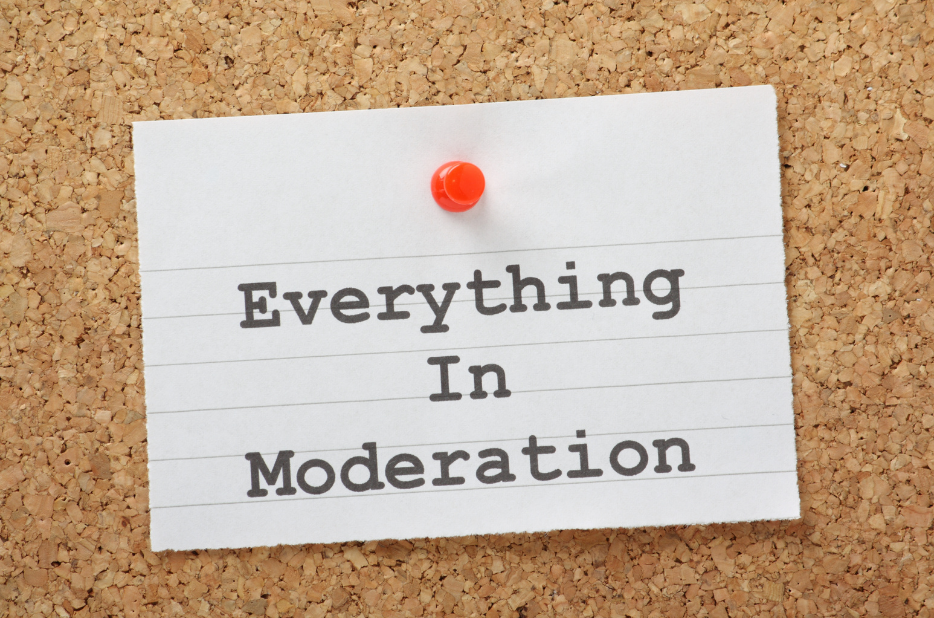If you’re an Airbnb host or looking to become one, one of the major decisions you will have to make for your listings is which cancellation policy you will use. This decision occurs during the third step of setting up your listing. Click here to read Airbnb Host Step 3 – Get Ready for Guests! These policies may seem a bit complex at first glance. But don’t worry–we’ll walk you through all of them! Below, you’ll be able to learn all about Airbnb cancellation policies and which option is best for you.
In addition, we’ll go over the repercussions for canceling as a guest as well as any repercussions you may experience when cancelling as a host. Finally, we’ll discuss the extenuating circumstances policy Airbnb rolled out in response to COVID-19.
Types of Airbnb Cancellation Policies
Airbnb offers several different cancellation options, each with their own pros and cons. Take a look at the list below to decide which option is ideal for you and your Airbnb property!
Airbnb Flexible Cancellation Policy
The Flexible Airbnb cancellation policy gives your guests a full refund if they cancel 24 hours before check-in time. This policy is the most advantageous for your guests. It is also the most similar policy to that of a hotel. If your guests cancel before the 24 hour cutoff, you won’t get paid for that reservation. However, different rules apply if they cancel with less than 24 hours to go before check-in time. When they wait until the last second to cancel, you’ll receive payment for that first night they were originally booked to check-in. They will also be charged a fee.
This policy boasts another huge benefit for guests. If in the event your guests decide to leave early, they will be fully refunded for the nights they didn’t stay. For this reason, Flexible policies are very attractive to guests. They allow for more freedom.
For you, this type of Airbnb cancellation for hosts is both good and bad. You can’t trust that your guests will commit to the reservation. With this option, they very well may have booked several places leaving the final decision to the last minute. Thus, a Flexible policy comes with more risk. However, you will get better visibility in Airbnb’s search tool.

Still wondering if a Flexible policy is the best choice for you?
When you are first starting out, a flexible cancellation policy may be to your benefit. This policy will attract the highest number of guests and will enable you to receive bookings at a faster rate. Keep in mind you must easily adapt to cancellations should they occur. If your property is located in a competitive area, it may not be difficult to rebook a cancellation.
Keep in mind that guests do tend to prefer Flexible and Moderate cancellation policies over Strict ones. You may also choose a Flexible Airbnb cancellation policy if business is a little slow. Adjusting your pricing and cancellation policy can be a way to attract new guests. Lower prices and a more lenient Airbnb cancellation policy equate to more business. If you’d like to learn more about pricing, we’ve written a great resource for you! Take a look at it here.
Airbnb Moderate Cancellation Policy
The Airbnb Moderate cancellation policy option is a happy medium in between the Flexible and Strict cancellation policies. It still gives guests a bit of leeway if they need to cancel. At the same time, it is stricter than the Flexible Airbnb cancellation policy.
With the Moderate cancellation policy, guests will receive a full refund as long as they cancel five days before check-in. When guests cancel before that time, you won’t be paid anything. If guests cancel within five days of check-in, you’ll receive 50% pay for the nights they didn’t stay plus one extra day at full price.

Considering a Moderate cancellation policy?
Remember that listings with this type of policy are often seen as more attractive than listings with an Airbnb Strict cancellation policy. An Airbnb Moderate cancellation policy should cover your needs if cancellations aren’t much of a hassle and your listing is in a busy area.
Remember that you still shoulder risk with a Moderate Airbnb cancellation policy. However, you won’t run into as many people abusing the system. In addition, guests can’t cancel last-minute without consequences. A Moderate policy will give you more financial certainty than a Flexible one.
To conclude, Moderate cancellation policies offer a choice in between the lax Flexible option and more restrictive Strict option. Airbnb has also released data showing that hosts who choose the Airbnb Moderate cancellation policy enjoy the highest rate of successfully completed nights.
Airbnb Strict Cancellation Policy
The Airbnb Strict cancellation policy leaves your guests with the least amount of freedom to cancel. In order to receive a full refund, your guests will need to cancel during the first 48 hours of booking. Additionally, this cancellation must also occur at least 14 days before they’re scheduled to check in.
Guests who cancel between the period of 48 hours from when they book the listing to one week before check-in will still need to pay half price for each night. Finally, guests who cancel with less than a week before checking in will be required to pay full price for their stay.

When may Airbnb Strict Cancellation be right for you?
An Airbnb Strict cancellation policy will cause some guests to turn away. However, there are certain situations where this may be the best option. For example, do cancellations cause significant issues and affect your business negatively? A Strict policy will minimize the chance for cancellations, especially last-minute ones. This gives you some very valuable peace of mind!
Another situation in which you might prefer an Airbnb Strict cancellation policy is if your property is a vacation rental. This is especially true during the busy season. You don’t want to miss out on any profit during this time period. If your property is in high demand, you’ll be able to find plenty of guests who are willing to work with the Strict policy. On the other hand, if you do get a cancellation during the busy season, you can most likely easily book again. The choice is yours.
Overall, a Strict Airbnb cancellation for hosts provides the most security. It gives you time to re-book cancellations, as well as additional financial stability and peace of mind. Unfortunately, Strict bookings don’t get as much visibility in Airbnb’s search. The strict policy may also cause your earnings to suffer. Not as many guests are willing to book in advance without some sort of flexibility.
Non-Refundable Booking
During Airbnb Host Step 3 – Get Ready for Guests!, you’ll decide between the Flexible, Moderate, or Strict Airbnb cancellation policies. At this point you may also choose to also offer a Non-Refundable option. You may be wondering what the difference is between non-refundable and strict. The Non-Refundable option gives potential guests the option of paying a reduced rate of 10% to book your listing for this reduced fee. This selling point can be used with any cancellation policy. Your chosen Airbnb cancellation policies stay the same. You simply offer a lower rate to turn your booking into a guaranteed stay.

Increase Guest Flexibility while you Guarantee Income
The non-refundable booking feature is a way to utilize the Airbnb strict cancellation policy while making the guest feel they are in the drivers seat. They choose to enforce this strict policy. Not you. You accept it and in doing so accept a reduced rate. If a guest cancels a Non-Refundable reservation, you will get paid in full for the stay, regardless of your chosen Airbnb cancellation policy.
Airbnb’s data shows that hosts who offer a Non-Refundable option in addition to a Flexible or Moderate cancellation policy tend to earn more revenue. This means that adding a Non-Refundable option is an easy way to increase your profits!
Please note, you do not have to offer the non-refundable booking option. This option automatically lowers the rate that you can receive. For longer stays, this non-refundable option can be the way to go to lock in a reservation. For shorter stays, this rate reduction could really cut into your profits. Unfortunately, you cannot predict the length at which guests will want to stay so you must weigh your options and choose if this option works for you.
Airbnb Cancellation Policy for Long-Term Guests
If long-term guests cancel in the middle of the stay, they must communicate with the host. The two will then agree on a new checkout date. In this case, the guest will be required to pay the host until the end of their stay or for the next 30 days, whichever comes first.
The Airbnb cancellation policy long-term only applies to stays that last 28 nights or more. With this policy, guests are free to cancel and get a full refund. However, they must do so at least 48 hours before check-in. Cancelling within 48 hours of check-in means that the guest must pay for the first 30 days of their scheduled stay. For these long-term stays, this booking is treated in the same manner as you would a tenant/landlord situation. The guest or “tenant” in this case needs to give 30 days notice to change or cancel their reservation dates.

What happens if you Cancel a Reservation as a Host?
Airbnb cancellation for hosts results in a few different consequences. First, Airbnb will deduct a fee from your next payout. If you canceled less than seven days before your guests were supposed to check in, the fee will be $100. On the other hand, if you canceled more than seven days ahead of time, the fee will be $50.
In addition, your calendar will be blocked out for that period of time. This is extremely important to consider. Some hosts do not stay on top of their tourist cycles. This may result in offering rates lower than average. If your listing gets booked for your regular rate during a popular time, you will not be able to cancel a reservation to attempt to receive a booking at a higher rate. Hosts have tried. You won’t be able to book anyone else during the dates of the canceled stay. Plus, an automated review from Airbnb will be posted to your profile explaining that you canceled a reservation. You can respond to this review, but it may have a negative impact on your business.
Multiple Host Cancellations
If you cancel more than three times in one year, Airbnb may choose to deactivate your listing. However, there are some exceptions in the case of reservations made using the Instant Book feature. Instant Book property hosts are able to use three penalty-free cancellations per year, after which they’ll need to contact Customer Service if they wish to cancel without any negative consequences.
But it’s important to note that Instant Book property hosts can only use their penalty-free cancellations for a few specific reasons. One is if the guest has a lot of negative reviews on their profile which give cause for concern. Another is if the guest hasn’t responded promptly to important questions from the host regarding their trip. Finally, an Instant Book property host can use a penalty-free cancellation if it’s clear that the guests will break one of the house rules. This could be something like smoking or bringing a pet onto the property.
Regardless of these stipulations, if any potential guest makes you feel uncomfortable at any time during the communication process contact Airbnb. You should not be expected to host someone in your home with whom you do not feel comfortable.
If you’re a Superhost, remember that you must maintain a cancellation rate of less than one percent! If you have an Instant Book property, your three penalty-free cancellations each year won’t have any effect on your Superhost status. For more information about Superhosts, check out our guide here.

How did COVID affect Cancellation Policies?
As coronavirus began to spread throughout the world, travelers everywhere canceled their upcoming trips. This had a huge effect on Airbnb, and forced the company to make a decision. Would it provide refunds to its customers, or would it give financial protection to hosts instead? To read about one host’s personal experience with this time, you can click here to check out “What happens when your Airbnb reservations disappear?”
Airbnb unrolled an Extenuating Circumstances policy to cover the effects of COVID-19. Under this Airbnb cancellation policy extenuating circumstances, reservations made on or before March 14, 2020 were eligible for refunds. These reservations also had to have check-in dates between the time the policy was rolled out and November 15, 2020.
Because of the Airbnb cancellation policy Extenuating Circumstances, individual cancellation policies chosen by hosts no longer applied to reservations made on or before March 14. Guests could now cancel without repercussions. In addition, Airbnb cancellation for hosts changed. Hosts could cancel on their guests without affecting their Superhost status.
Where do reservation policies stand now?
Reservations made after March 14, 2020 are not covered by Airbnb’s extenuating circumstances policy. This policy was meant to protect customers from unpredictable circumstances that occur after their reservations were already made.
Once the World Health Organization classified COVID-19 as a worldwide pandemic, it no longer qualified as an extenuating circumstance. This is because anyone who traveled after that time knew about the risks involved.
The only cases in which the extenuating circumstances policy comes back into play are when the host or guests are currently sick with COVID-19.
Tips to remember when choosing Airbnb Cancellation Policies
- A Flexible policy is more risky for you as the host, but can result in more bookings. It gives guests freedom to cancel and receive a refund up until 24 hours before check-in.
- Airbnb’s Moderate policy is a happy medium between the Flexible and Strict policies. It is the most common policy chosen by hosts.
- The Airbnb strict cancellation policy provides more protection for hosts. It also requires guests to commit to their reservation, or cancel at least 14 days before check-in.
- A Flexible or Moderate policy can be paired with a discounted Non-Refundable option.
- As a result of the coronavirus pandemic, Airbnb rolled out an extenuating circumstances policy. This policy covered reservations made on or before March 14, 2020 that had check-in dates up to November 15, 2020.
